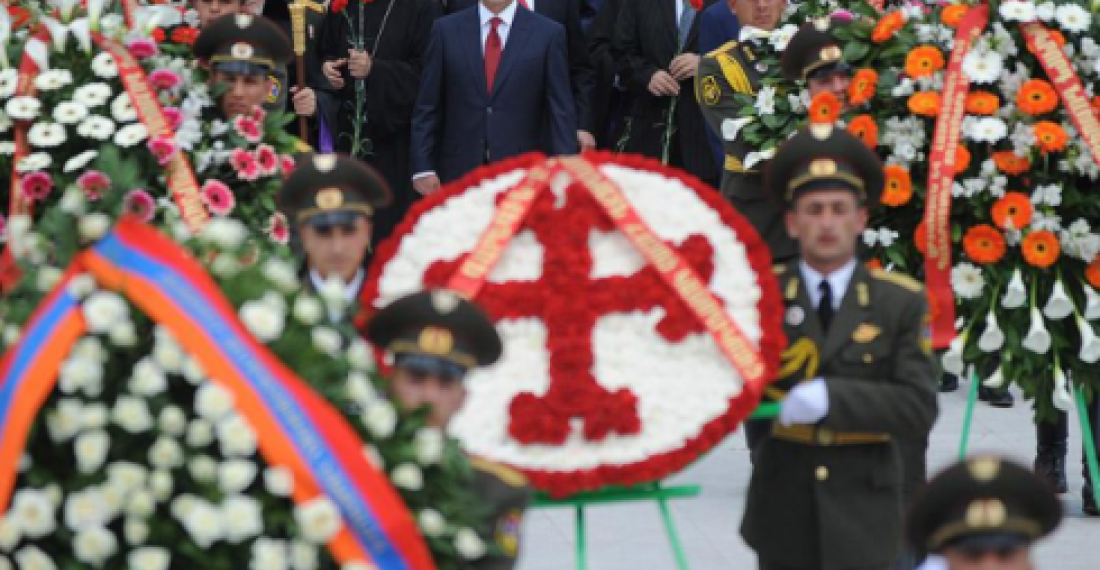The Armenian leader, Serzh Sargsyan yesterday visited Nagorno-Karabakh to boost morale in the territory following recent incidents on the line of contact separating Armenian and Azerbaijani forces. The President also visited the town of Shusha which Armenians say that they liberated in 1992, but which Azerbaijanis claim is under Armenian occupation.
The President was accompanied during his visit by the Catholicos of All Armenians Karekin II and by the president of the self declared Nagorno-Karabakh Republic (NKR), Bako Sahakian.
The website of the Armenian President said that the visit was "in the framework of the celebrations dedicated to Victory Day, NKR Defense Army and the 20th anniversary of the liberation of Shushi".
In the meantime in Baku an art and photo exhibition entitled "Shusha - the pearl of history and culture of Azerbaijan" opened on Monday. According to a decree signed by President Ilham Aliyev "on the 20th anniversary of Shusha's occupation, in all the cultural centers of Azerbaijan events will be held", Culture and Tourism Minister Abulfas Garayev said, speaking at the opening of the exhibition at the Museum Center. "Shusha, which was founded in 1747, has always been a city of Azerbaijan, and always will be. Shusha is the conservatoire of Azerbaijan," he said.
Shusha holds its place in the history of Azerbaijan, the Chairman of Public Association "Azerbaijani community of Nagorno-Karabakh", the head of the Shusha region, Bayram Safarov, said at the meeting. "Today the Azerbaijani army is ready to liberate Shusha, but the Azerbaijani side is trying to return the occupied land peacefully. If not, Shusha and other occupied territories will be returned by any means," he said.
In the meantime within hours of taking office as President of Russia, Vladimir Putin has signed an Executive Order "On Measures for the implimentation of the Foreign Policy of the Russian Federation." According to the Administration of the Russian President "the Executive Order aims to implement a coherent foreign policy of the Russian Federation that would protect its national interests based on the principles of pragmatism, transparency and a multiple-vector approach in forming a new, multicentric system of international relations."
On Nagorno-Karabakh the Executive Order gives instructions for "settling the Nagorno Karabakh conflict in cooperation with other OSCE Minsk Group co-chair countries and based on the principles laid out in joint statements by the President of Russia, the President of the United States and the President of France made between 2009 and 2011".
source: commonspace.eu
photo: Armenian President Serzh Sargsyan layed a wreath on the ocassion of Victory Day during his visit to nagorno-Karabakh on 8 May. (picture courtesy of the Press Office of the president of Armenia).







